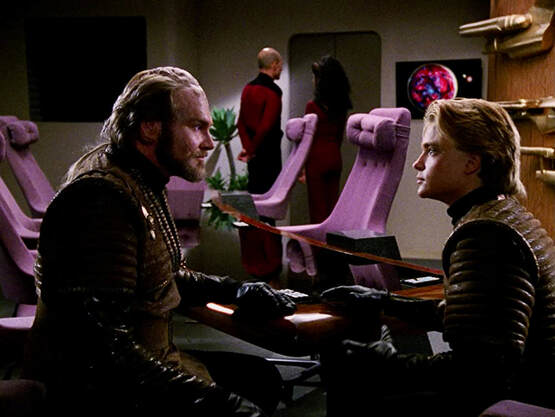Written by John Edward Betancourt It has often been said that we are a product of our environment, and there is a lot of weight behind that particular phrase. Because the world we are introduced to in our youth, and the lessons that our parents and other adults teach us as we grow; help to form our opinions and our views of the world. Which is why it is important for us to see some of the world and learn about other cultures when we get older. So that we don’t become stagnant in our ways and our thinking. But while a vast majority of us are able to travel and learn when the time is right, that opportunity isn’t afforded to all and those are the folks that relate to that initial statement the most, since they are locked in a world that is exclusive to them. Which begs a fascinating question, in that, is it possible for someone who holds to a particular worldview to change their perspective and the habits that come about from said perspective? Well, it just so happens, that the next episode of Star Trek: The Next Generation was eager to dive into the answer to this question… by having the crew of the Enterprise encounter a young and impressionable youth that was indeed a product of his environment. For ‘Suddenly Human’ sees the crew of the 1701-D answer a distress call from a ship that belongs to a war like race known as the Talarians. And during the transfer of the wounded to the ship, Doctor Crusher comes to learn that a human teenager is among the causalities. One that oddly enough, believes in everything the Talarians stand for, which prompts an investigation on Captain Picard’s part. Because it is clear that this young man doesn’t belong with another species and it is imperative for Starfleet to learn who he is and how he got there. And thankfully it doesn’t take long to learn that this young man is named Jeremiah Rossa, and that his parents were killed in a Talarian raid on his home colony years ago and clearly, he was raised by the people that murdered his family, giving him a unique perspective on life and the universe, one that Picard works to alter. For his grandmother, Admiral Rossa, would like to see him returned home and that’s where this grand exploration begins. Because Jeremiah struggles mightily with being from two worlds, and while he tries his best to acclimate to humanity, pressure from his adopted father and the conflict of being from two different civilizations proves to be too great of a challenge for Jeremiah, and he is allowed to return to his surrogate home to live his days out in peace. Which at first glance, makes it appear as though Captain Picard fails to reach Jeremiah on a fundamental level and that the answer to the question posed earlier, is a big fat no. But when one takes a moment to really ponder upon the subtlety of this particular tale, it quickly becomes evident that the bittersweet nature of this ending, actually manages to answer that aforementioned question in a unique manner. Because in essence, Picard gives Jeremiah a choice, one where he can embrace a new world view or stick with what he knows and that’s really the whole philosophical point to that all-important question. In that, such a change is in fact, up to the individual. And if they’re curious about learning more about the world beyond the bubble they’re currently within, then they have to be open to change and the effort that will go into discovering a new world and potentially a new life, when they’re presented with realities that they never knew existed, and that can be quite scary. For we are creatures of habit through and through and enjoy comfort and status quo and that is why it makes sense that Jeremiah chose a different path. And while that makes it seem as though this episode ends in a bitter and downtrodden manner, that’s simply not the case. No, instead, that ending is about as realistic as it gets since that is undoubtedly something that plays out in real life more often than we know. If anything, episode deserves serious credit for presenting such a unique concept in a realistic and dynamic light and it just goes to show, that season four of TNG is eager to explore every corner of the human condition, no matter how complex or uncomfortable it might be and that definitely makes this a powerful tale when all is said and done. One that also features a horror legend by way of Howard Sherman (credited as Sherman Howard here), who just so happened to play Bub in George Romero’s Day of the Dead and his performance here as Jeremiah's surrogate father, adds depth and gravity to a supremely cerebral tale. Until next time.
0 Comments
Leave a Reply. |
Archives
April 2025
|
|
© 2012-2025, Nerds That Geek LLC.
All Rights Reserved. |
uWeb Hosting by FatCow

 RSS Feed
RSS Feed